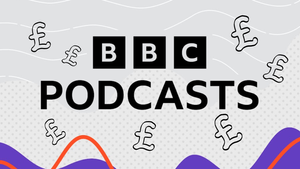The BBC has abandoned plans to start selling advertising alongside its podcasts when they are accessed on third party platforms, like Spotify and Apple Podcasts, within the UK. The plans - part of efforts to find new revenue streams for the BBC to complement its core licence fee income - were widely criticised by commercial podcast producers.
A spokesperson for the BBC says, “We have listened to feedback and, having considered the options carefully, we have decided to rule out placing adverts around BBC licence fee-funded programmes on third-party podcast platforms in the UK”.
Among the critics of the plan was Radiocentre, which represents the UK’s commercial radio sector. Its CEO Matt Payton says “this is clearly the right decision for audiences, as well as the many businesses investing in podcasts in the UK. The BBC receives significant funding from the licence fee to produce distinctive audio content and introducing advertising alongside this would be damaging and inappropriate”.
The BBC’s commercial wing, BBC Studios, will continue to sell advertising on the broadcaster’s podcasts outside the UK. Given it was recently revealed that the ad-free BBC Sounds app will only be available within the UK from this spring, presumably it’s hoped more international podcast listeners will be forced to platforms where ads can be included.
The BBC’s licence fee income has declined in real terms over the years, when inflation is taken into account, as a result of the annual price per household being frozen at various points over the last fifteen years. And there continues to be much debate about the future of the TV licence, and if and when the BBC should look to shift to a different funding model.
The big challenge for BBC management is that - while commercial broadcasters and media companies don’t like the fact the BBC enjoys the luxury of licence fee funding - they also don’t want the BBC to start competing in the UK advertising and subscription markets. Plus, whenever the BBC proposes major cutbacks to its output, there’s usually a backlash from viewers and listeners.
Under the podcasts plan announced in March last year, the BBC’s podcasts would still be available ad-free via BBC Sounds, but ads would be added on third party platforms.
When announcing that plan, BBC Studios said that “adverts are the norm” on commercial podcasting platforms, and selling ads alongside BBC content on those platforms would “generate more revenue to support the BBC, licence-fee payers, and our suppliers and rightsholders”.
But commercial radio companies, those newspaper publishers that also publish podcasts, and bespoke podcast businesses like Goalhanger and Podmasters all hit back at the plan, arguing it would have “a significant adverse impact on fair and effective competition in the UK podcast market”.
An open letter signed by 20 podcast producing companies said the plan would “make it even more difficult for producers, broadcasters and publishers to generate a reasonable return on their investment, while generating income for the BBC that is unlikely to make a significant contribution to its overall budget”.
That backlash clearly had an impact, meaning BBC Studios will now have to try to make more money selling more ads around BBC podcasts that are accessed in other countries.
The changes to BBC Sounds should help with that. It recently emerged that, from this spring, the BBC Sounds app will only be available within the UK. That means most of the BBC’s radio stations and ad-free podcasts will no longer be available to listeners abroad (unless they employ a pesky VPN, of course).
Access to BBC Radio 4, the BBC World Service and a selection of podcasts will be provided by the commercial BBC.com website and app, and other podcasts will still be available on third party podcast platforms, complete with the ads.
It’s thought that the decision to geo-block BBC Sounds is partly about pushing more international listeners to commercial revenue-generating platforms, but also to save the BBC from having to navigate the complexities of licensing content for radio programmes, especially music, once you go global.

